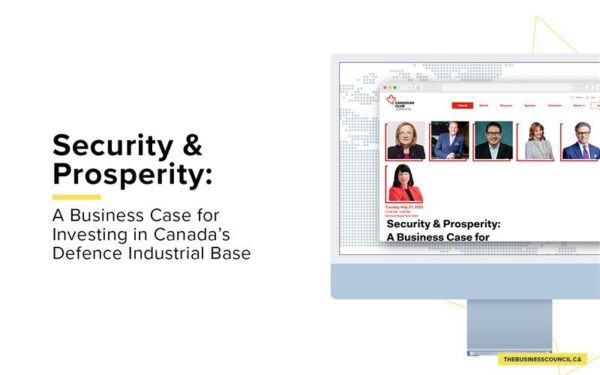Remarks to the Standing Senate Committee on Legal and Constitutional Affairs regarding Bill C-74
Thank you. Mr. Chairman and Honourable Senators. I am pleased to be here today to discuss these important amendments to the Criminal Code.
Le Conseil canadien des affaires réunit les chefs d’entreprises pour formuler la politique publique dans l’intérêt d’un Canada plus fort et d’un monde meilleur. Le Conseil est un organisme sans but lucratif et non partisan composé des chefs d’entreprise des 150 sociétés les plus importantes du Canada, représentant chaque région et secteur de l’économie.
Canada’s business leaders place considerable importance on maintaining our country’s reputation for high standards of corporate ethics. We believe the use of remediation agreements will offer an important additional tool to Crown prosecutors and strengthen their ability to deal with cases of corporate wrongdoing.
While we believe there are likely to be cases where the use of this new tool would be appropriate, let me be clear about one thing. If it is apparent that senior management directed or were complicit in the offence, or turned a blind eye to what was going on, the company would not be eligible for a remediation agreement, nor should they be.
I note also that there are a number of strict conditions before the use of these agreements would even be considered by a prosecutor:
- The company must cooperate fully with investigators and turn over relevant information to support the prosecution of responsible individuals.
- The company would pay a considerable fine and give up any profit or other advantage related to the activity.
- A requirement that the company compensate anyone harmed by the wrongful conduct and pay a victim surcharge if applicable.
- The prosecutor and the court must be satisfied that the company has reformed its practices and instituted a comprehensive compliance program to ensure high standards of business ethics going forward.
- In appropriate cases, the Court can impose strict conditions on the company’s practices and appoint an independent monitor to oversee the fulfillment of these conditions.
- In most cases, the remediation agreement would be made public, thereby increasing transparency beyond what is available today when dealing with these kinds of offences.
- Only after this agreement has been approved by a judge and all these conditions are met, could a prosecutor decide to stay a prosecution.
One benefit of these agreements is that they provide a powerful incentive for a company to come forward when it finds evidence of wrongdoing. In many instances, this would reveal cases of illicit conduct that otherwise would go undetected by enforcement authorities.
Fraud, bribery, bid rigging and other such offences can be extremely difficult to prove, and the perpetrators can employ complex arrangements that are difficult to detect from outside the company. It is largely for this reason that the Ontario Securities Commission now offers to pay significant financial rewards to whistleblowers who come forward with evidence of securities fraud.
The other clear advantage of the use of DPAs is that it puts the focus on the true wrongdoers – often a single or small number of rogue employees acting in their own self-interest – and better protects the innocent.
As a result of the federal government’s Integrity Regime, firms convicted of such an offence can be debarred from government procurement for up to 10 years. They can also be excluded from contracting with other private companies and international institutions. For a major government contractor, this could have significant consequences and even threaten the viability of the firm. Equally important, it could have immediate as well as lasting negative consequences for those who had nothing to do with the crime – employees, pensioners, shareholders, customers and suppliers.
I would note the example of the accounting firm Arthur Andersen in light of the Enron scandal of the early 2000s. Arthur Andersen had been the auditors for Enron, and the end result was the demise of one of the largest accounting firms in the United States, impacting the livelihoods of thousands of employees.
Such agreements, more commonly known as deferred prosecution agreements or DPAs, are used in the United States, the United Kingdom and France, and are likely to be adopted in Australia. It is important that our Canadian laws keep pace so that our companies are not at a competitive disadvantage. And we want to avoid situations where a Canadian company could lose a contract in another country because foreign competitors are able to impugn the integrity of the firm while corruption charges are pending.
Mr. Chairman, a reputation for sound ethical behaviour is critical to the success of our private sector and ultimately reflects on the Canadian brand itself. As I have noted, the use of remediation agreements can be a powerful incentive for companies to cooperate with authorities, which ultimately leads to higher levels of enforcement, thus reinforcing the Canadian brand.
Thank you for the opportunity to appear today and I look forward to your questions.









